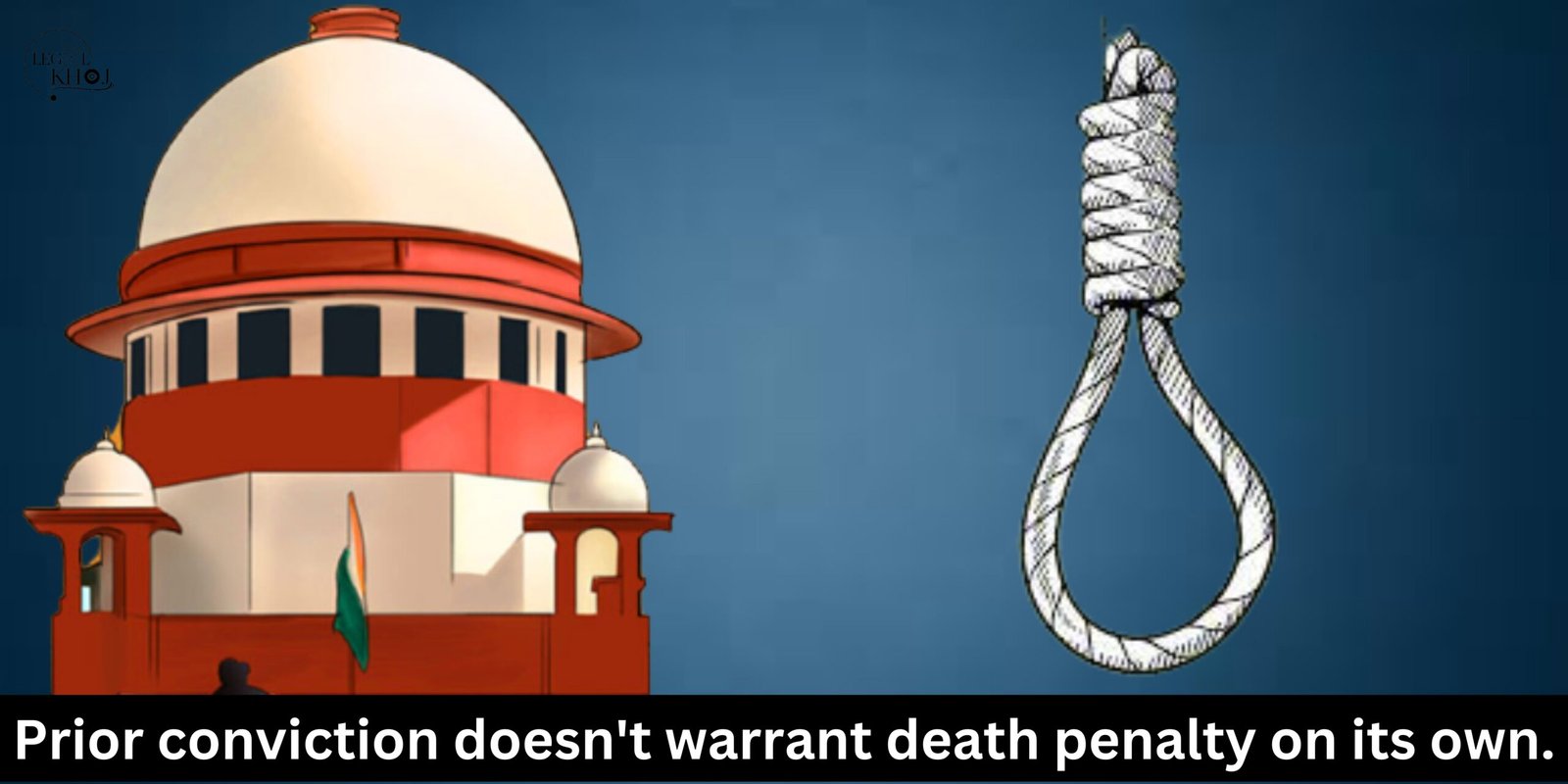Supreme Court Asserts: Prior Conviction Alone Not Sufficient for Death Penalty
The Supreme Court has asserted that a convict’s prior criminal history alone should not serve as the sole justification for imposing the death penalty. This declaration came as the Court commuted the sentence of a convict from death to life imprisonment in a 2003 murder case, specifically the Madan vs State of Uttar Pradesh.
In its ruling, the bench comprising Justice BR Gavai, Justice BV Nagarathna, and Justice PS Narasimha emphasized that the criminal history of an individual cannot be the exclusive basis for imposing the death penalty. Furthermore, the Court clarified that the convict must serve a minimum of 20 years in prison under the life imprisonment sentence before becoming eligible for early release on remission. This decision was rendered on Thursday.
Overview of Death Penalty of convict
The Court decided to commute the death penalty of the convict, taking into consideration the prolonged incarceration and the fact that a co-accused, sharing the same role, had received a life sentence.
Significantly, the Court identified the sole distinguishing factor between the two co-accused: only one of them had a criminal history.
Nevertheless, the bench underscored that this disparity in criminal history should not serve as a justification for treating the two accused differently, particularly given that both were accused of similar crimes.
“Undoubtedly, appellant Madan carries a record of prior convictions; however, this Court, as affirmed in the case of Rajendra Pralhadrao Wasnik (supra), unequivocally asserts that the mere history of the convict cannot be the sole rationale for imposing the death penalty,” the Court underscored.

The Supreme Court was in the process of hearing two appeals challenging an Allahabad High Court order that convicted two men for murder and other offenses. The murder was reportedly instigated by political and family animosity, resulting in the death of six individuals during a shooting incident.
In the initial trial, three men were convicted for the crime, with two receiving death sentences and one being sentenced to life imprisonment.
Upon appeal, the High Court upheld the death penalty for Madan, while partially allowing the appeal of the co-accused Sudesh Pal. Sudesh Pal, who had initially received a death sentence from the trial court, had his conviction affirmed by the High Court but saw his death penalty commuted to life imprisonment.
In alignment with the High Court’s decision, the Supreme Court maintained the convictions of both Madan and Sudesh Pal but altered Madan’s punishment, commuting his death penalty to life imprisonment, mirroring the sentence imposed on Sudesh Pal.
Analysis by Court
In its analysis, the Court recognized that the murder case fell within the category deemed as the “rarest of the rare,” typically warranting the imposition of the death penalty. Despite this, the bench identified mitigating circumstances that led them to refrain from imposing the ultimate punishment.
Among the mitigating factors considered by the Court in this instance were Madan’s age of 64 years and his lengthy 18-year incarceration. Additionally, reports indicated that Madan had exhibited commendable behavior in prison, suggesting potential for rehabilitation. Positive psychological assessments further contributed to the Court’s decision.
Consequently, the Supreme Court concluded that imposing the death penalty on Madan was deemed inappropriate in light of the aforementioned mitigating circumstances.
“The eyewitness accounts consistently attribute an identical role to all the accused. Considering this perspective, we assert that the High Court’s decision to impose the death penalty on appellant Madan, while converting Sudesh Pal’s death sentence to life imprisonment, lacks justification. Upholding the High Court’s judgment would result in an anomalous situation,” emphasized the Court.
Conclusion
In conclusion, Madan’s criminal appeal was partially granted, resulting in a sentence of life imprisonment instead of death.
The death penalty was amended to a life sentence spanning 20 years, encompassing the time already served. It was explicitly clarified that Madan would be eligible for remission only upon the completion of this specified period.









Leave a Reply